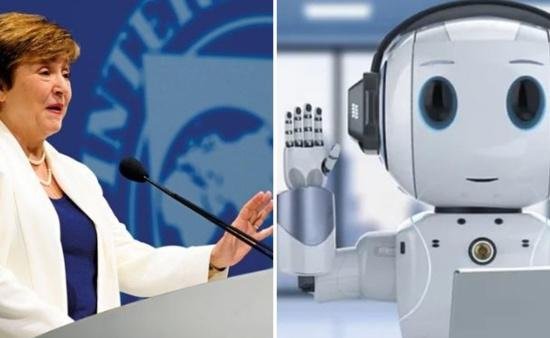According to a recent International Monetary Fund (IMF) report, artificial intelligence is poised to revolutionise the workplace, possibly affecting up to 40% of all occupations worldwide. Surprisingly, the impact would not be shared equally among countries. Advanced economies, such as the United States and Europe, risk greater upheaval than developing markets and low-income nations.
“In most scenarios, AI will most likely worsen overall inequality, a troubling trend that policymakers must address proactively to prevent the technology from further stoking social tensions,” said IMF Managing Director Kristalina Georgieva in a recent blog post on the study. She warned that if AI augments high-income labour more, wealth disparities may deepen as capital returns rise.
AI Job Impact Scenarios
According to the report, while AI has the ability to completely replace specific occupations, it is more probable that it will complement human employment. Advanced economies are likely to lose around 60% of their employment, outweighing the impact on rising and low-income countries.
Georgieva’s thoughts of AI are consistent with talks among global corporate and political leaders at the World Economic Forum in Davos, Switzerland, where AI is a hot issue.

Companies, notably Buzzfeed Inc., have made significant investments in AI, creating anxieties among employees about the future of their jobs. Buzzfeed, for example, revealed intentions to leverage artificial intelligence for content generation, resulting in the shutdown of its primary news section and the loss of more than 100 employees.
In December, the European Union struck a preliminary agreement on laws to set safeguards for AI. Meanwhile, the United States is still considering its federal regulatory approach to artificial intelligence. In related news, 2024 is already seeing a wave of layoffs from tech companies including big names like Google and Amazon.
How to Combat it according to IMF?
In order to combat this, Georgieva proposed that governments develop “comprehensive social safety nets” and retraining programmes to assist workers who are vulnerable to relocation. While AI has the potential to completely automate specific vocations, it is more likely to complement human capabilities in the majority of roles initially.

Georgieva’s comments come as political and corporate leaders gather in Davos this week for the World Economic Forum’s annual gathering, where the influence of artificial intelligence is a hot subject.
The regulatory landscape for AI is still in change worldwide. For example, the European Union struck a tentative agreement last month on regulations controlling the use of technology, including risk assessments and transparency requirements. Meanwhile, the United States is still deciding how to regulate artificial intelligence on the federal level.










